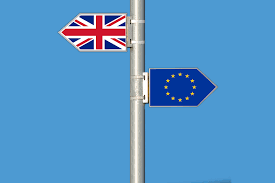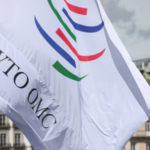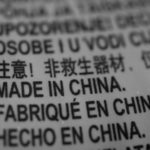The nexus between trade and regulation is one that will feature highly on the UK’s policy agenda in a post-Brexit world. David Davis’ speech in Vienna on 20 February 2018, in which he stated that Brexit would not lead to a “Mad max dystopia” and a bonfire of regulations, demonstrated just how sensitive the issue has become.
Regulation and trade
Independently of Mr. Davis’ remarks, the way trade rules address regulation has been a key issue of interest – arguably, the most important one – for at least a decade now. At least three reasons make this so.
First, for some time now, “behind-the border” issues have become more important as border measures such as customs duties have declined. Secondly, the development of cross-border, and indeed, trans-continental, value chains that bring together various services and manufacturing activities has increased the premium on regulatory harmonisation. And finally, there remain some deep-seated differences in regulatory philosophies between major jurisdictions – notably the EU and the US.
Regulation aims to correct various forms of market failure. International trade rules recognise the right of states to regulate in order to promote specific matters of public interests. The rules require that regulation not be used as a pretext for protectionism: that they be non-discriminatory, and that they do not constitute an unnecessary obstacle to trade. Most litigation regarding regulation turns around alleged violations of one or both of these requirements.
One of the central claims of proponents of a clean break between the UK and the EU is that this would allow the UK to reduce the regulatory burden on firms and consumers, and that this would lead to large gains in economic growth.
Many of the projected gains are largely the artefact of particular economic models that assume markets never fail. If that were to be the case, then there would be no reason to regulate in the first place, and so in those models regulations always show up as costs and never confer any benefit.
In the real world, markets do fail: factories cause pollution, the health and safety of workers and consumers need to be protected, and financial crises happen. There is thus a case for regulation, or at least for good regulation whose benefits outweigh its costs. On that basis, Mr. Davis is surely right to eschew a “bonfire of regulations”.
While there are strong theoretical and empirical grounds that point to the benefits of reducing traditional barriers to trade – such as tariffs – the story is different for regulation. This is for the reasons mentioned above: the appropriate depth and breadth of regulation depends on the overall calculus of benefits and costs. These are context-specific, and depend not only on the characteristics of the country of region implementing the regulation, but also social preferences regarding risk. For this reason, different countries have evolved their own particular approaches to regulation. Reconciling these differences through negotiations is an arduous task – it is one reason why negotiations between the US and the EU on trade have been so tricky.
Cassis de Dijon – the magic potion?
The EU has had to grapple with regulatory questions as part of its overall objective of boosting intra-European trade within the single market. It’s approach has been two-pronged.
The first prong is harmonisation i.e. ensuring common regulation across member states. However, it is neither feasible nor desirable to mandate uniform regulation across all EU jurisdictions.
The second principle is mutual recognition. This requires that a product lawfully marketed in compliance with national regulations in one state, its sale should be allowed in another without any requirement to adapt to the specificities of technical rules in that state, provided it meets equivalent levels of protection.
The principle was upheld through in a famous ECJ ruling involving Cassis de Dijon. Since then, whenever the question of mutual recognition arises, the Cassis de Dijon principle is evoked. The principle has also found its way into the EU’s arrangements with other non-members: it’s key part of the bilateral agreement between Switzerland and the EU.
In his speech in Vienna, Mr. Davis argued that the UK would rely on the principle of mutual recognition to maintain market access for businesses. The reasoning seems to be that this allows some flexibility to depart from EU regulations (i.e. from harmonisation) and therefore satisfy some of the political aspirations behind Brexit, while containing the economic fallout.
But drowning fears of such fallout through lashings of Cassis may prove to be a tricky proposition. As already observed, the EU itself relies on mutual recognition, so the reliance on mutual recognition is not in and of itself a novel experiment. The main challenge is that, on the EU’s own findings, mutual recognition within the EU is not working very well. Around 20% of intra-EU trade is in non-harmonised or partially sectors i.e. ones potentially reliant on mutual recognition. Businesses surveyed rarely relied on mutual recognition – indeed, 87% surveyed adapted to national standards straight away.
No quick fixes
Mr. Davis proposals do not mark a radical departure from what the UK currently does in the EU – rely on a mixture of harmonisation and mutual recognition. Though the mix may change a little. With the EU’s own agenda on regulation and mutual recognition a work in progress, the UK will have its work cut out in identifying an optimal approach to handling the nexus between trade and regulation. It will need the capacity to identify areas of regulation are ones in which departing from the EU approach may be appropriate (because regulation can be better tailored to national characteristics) and in which such departures will not cause significant obstacles to trade.









